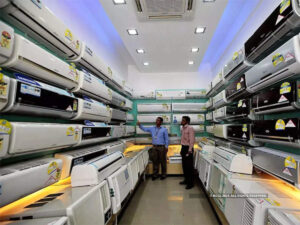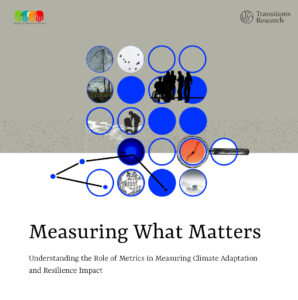What relief measures do gig workers need during this pandemic?
The coronavirus pandemic has the world in its grips, and exposed the fragility of our economic systems and societal structures. The ensuing lockdown and physical distancing measures put in place by states to control the spread of the virus has impacted citizens differently and largely along class lines. While white collar workers remain relatively insulated as they work from home and have their essentials delivered, it has laid bare the vulnerabilities faced by India’s largely informal workforce. Since announcing the lockdown and the exodus of migrant workers from cities, the central and state governments in India have announced a number of relief measures for workers. However, those working on on-demand platforms have been excluded, while relief measures announced by a few platforms are inadequate to provide meaningful protection, leaving workers to fall at the cracks. Tandem Research and the Centre for Internet and Society (CIS) hosted a webinar on 9th April with a group of union leaders and researchers to draft a charter of demands for platforms and government to ensure better protection for gig workers.
We heard from 4 union leaders about the situation facing workers on the ground and the shortcomings of the measures platforms claim to be taking to ensure their workers’ safety and protection. This piece recaps some of the issues that were uncovered during the meeting
Tanveer Pasha, President of Ola, Taxi 4 Sure and Uber Drivers and Owners’ Association (OTU) and Shaik Salauddin, President of the Indian Federation of App-based Transport Workers (IFAT) pointed out that while Ola Cabs and Uber claim to have instructed drivers on safety and hygiene measures and provided personal protective equipment (PPE), in reality their efforts have been wanting. The unions themselves have been conducting these awareness drives while IFAT purchased masks for drivers in Telangana. On-demand food delivery services have also not provided workers with any PPE, although they have been deemed essential workers and must continue to interact with customers and restaurants as they go about their tasks.
High on the list of concerns facing gig workers was income security and the security of their jobs once the lockdown is lifted.
Transportation companies Uber and Ola cab have suspended services although some drivers in Bengaluru, working with OTU have pivoted to delivering essential goods or transporting healthcare workers. The number of orders on on-demand food delivery services has dropped drastically too. Gig workers are earning little to no money during this time and have little recourse to savings or other safety nets.
Unions are demanding that workers are paid a sum of money to tide them over during this time, which can be paid back to the platforms without interest. Unions argue that the commissions charged by platform companies can be used to cover these costs and even call for a reduction in the commission after the lockdown is lifted so that workers can recover financially.
Ola Cabs and Zomato have started funds to support their workers, taking donations from the public and from management, but workers are yet to see the benefits of the funds. With little transparency or clarity as to how these funds will operate, unions and workers are left wondering if this is solely a publicity move on the part of platforms. No announcements have been made regarding these funds – who is eligible for the fund? What are the criteria workers will have to meet to receive funds? Will workers have to pay the amount back to the platforms? If yes, will it carry interest? Will workers’ ratings or the hours they’ve logged on the app be used to determine their eligibility?
The government announced a moratorium on EMI and loan repayments, and has directed the RBI to set guidelines. Some state governments have also announced waivers on house rent payments. While these measures should have eased the pressure on gig workers, that hasn’t been the case – informal lenders and non banking financial companies (NBFC) have continued to ask workers for payments, flouting the RBI guidelines. In the absence of enforcement from the government, gig workers are unable to reap the benefits of directives designed to relieve the financial pressure they are currently under.
Delivery workers find themselves in a double bind – they have been deemed essential workers by the government and on-demand services remain up and running. However, with few restaurants remaining open and few orders coming in, they are forced to work long hours for little money, and in risky conditions as roads remain deserted because of the lockdown. Dharmender Vaishnav (Indian Delivery Lions) and Kaveri Kaliyanda (PhD scholar, University of Sussex) raised pertinent questions over the classification of delivery workers as essential workers – Who are the workers essential for? At what personal cost to their health and safety must delivery workers continue to serve the interests of platforms and their middle class customer base? This categorisation also allows on-demand food delivery companies to absolve themselves of the responsibility for ensuring workers receive wages – they can claim services continued to operate and shift the blame onto workers for not logging in. Many of the workers who have gone back to their native towns and villages are anxious that their accounts will be deactivated for not logging in.
These issues facing gig workers will be drafted into a set of demands for platforms and government to provide relief. However, many questions remain unanswered. While these measures may address the hardships gig workers face in the short term, it doesn’t address long standing issues that characterise this line of work. The precarity of gig workers stems from the marginal space they occupy in the labour market. As ‘partners’ or ‘independent contractors’, they are not entitled to social protection measures from the government nor are platforms obliged to provide them. Unlike construction workers or domestic workers-who are also informal workers but enjoy recognition of an organised body and some legislative protections-they remain largely invisible to policymakers and government. Getting gig workers this type of recognition will be crucial to ensure their wellbeing. In Karnataka, there are efforts underway to introduce regulations similar to California’s AB5 bill that recognises gig workers as employers eligible for state and employer sponsored benefits. Gig workers have been included in the draft Code on Social Security. However, regulating platforms to make them more accountable and safeguarding worker welfare is long overdue. It is especially urgent at this time – the economic repression that will follow is likely to push more young jobseekers to the platform economy as a stop gap solution in the absence of suitable employment. The conditions of work platforms engender are far from ideal and should not become the model for jobs in the future.
Full list of participants below:
Dharmendra Vaishnav, Indian Delivery Lions (IDL)
Shaik Salauddin, Indian Federation of App-based Transport Workers (IFAT)
Tanveer Pasha, Ola, Taxi 4 Sure and Uber Drivers and Owners’ Association (OTU)
Vinay Sarathy, United Food Delivery Partners’ Union (UFDPU)
Aayush Rathi, Ambika Tandon and Tasneem Mewa, The Centre for Internet and Society, India (Co-organisers)
Aditi Surie, Indian Institute for Human Settlements
Astha Kapoor, Aapti Institute
Janaki Srinivasan, International Institute of Information Technology, Bangalore
Kaveri Kaliyanda, The University of SussexPradyumna Taduri, Fairwork Foundation
Rakhi Sehgal, Independent researcherSimiran Lalvani, Independent researcher
Zothan Mawii, Iona Eckstein and Urvashi Aneja, Tandem Research (Co-organisers)
The publication was first published by the authors under auspices of erstwhile Tandem Research.




